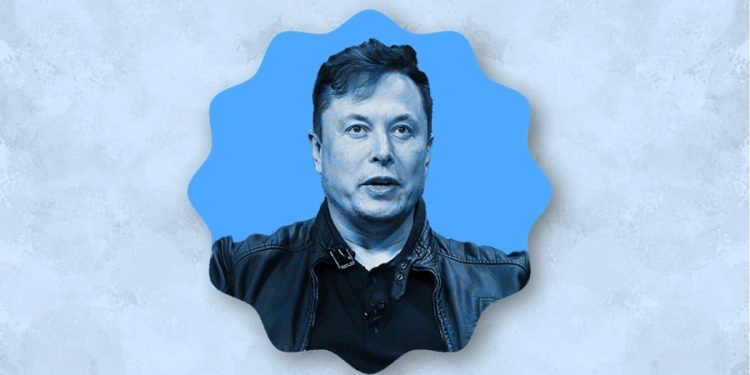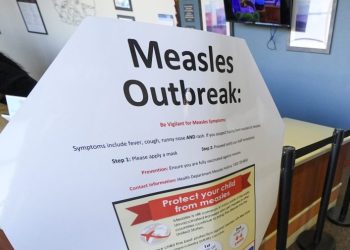🎭 Looks like we’ll be stuck with the Phantom for just a bit longer. A boost in ticket sales has pushed back the end of “The Phantom of the Opera” on Broadway by two months.
Today in health, Twitter will no longer be enforcing its COVID-19 misinformation policy as part of Elon Musk’s aims of rolling back content moderation on the platform.
Welcome to Overnight Health Care, where we’re following the latest moves on policy and news affecting your health. For The Hill, we’re Nathaniel Weixel and Joseph Choi. Someone forward you this newsletter?
Twitter won’t enforce COVID misinformation policy
Twitter is no longer enforcing its policy about COVID-19 misinformation as part of changes made under new CEO Elon Musk.
Twitter did not formally announce the change, but a note was added to the top of the page about the policy to say that the rule was being rolled back.
“Effective November 23, 2022, Twitter is no longer enforcing the COVID-19 misleading information policy,” the note stated.
The platform suspended more than 11,000 accounts for violating the policy between January 2020 and September 2022, according to data published by Twitter.
The cessation of the policy’s enforcement is part of changes Musk has made since closing his $44 billion acquisition of Twitter at the end of October. He has pledged to create a “free speech” platform, detailing a vision for having less content moderation measures in place in a way that critics have warned will lead to more hate speech and misinformation on the site.
Civil rights and other advocacy groups have been putting pressure on Musk to change course and bring back content moderation measures through a campaign urging advertisers to pull their ads from Twitter.
Imran Ahmed, CEO of the the Center for Countering Digital Hate, called the rollback of the COVID-19 misinformation policy an “irresponsible decision” that puts lives at risk and “opens the floodgates to those who spread deadly lies.”
Read more here.
Flu season intensifies with 6M infected in US: CDC
Flu season is intensifying in the U.S. with more than 6 million cases confirmed so far, the Centers for Disease Control and Prevention (CDC) reported on Monday.
The federal health agency said in a weekly update it has already recorded more than 53,000 hospitalizations and 2,900 deaths from the flu this season, as of the week ending Nov. 19.
Twelve children have died from the flu so far, the CDC said, and the cumulative hospitalization rate is the highest it’s been at this point in the flu season since
2010-2011.
Flu season typically starts in October and ends around May, with a peak in December or January. It began six weeks early this year, causing a spike in hospitalization rates.
Influenza A is the dominant virus, making up close to 100 percent of all confirmed flu cases, according to the CDC.
Of the confirmed cases of Influenza A, 78 percent are the H3N2 strain and
22 percent are the H1N1 strain.
As of the week ending Nov. 19, the states most affected by the flu so far this season include California, Texas, New Mexico, Colorado, Washington, Virginia and New Jersey, which are among those the CDC lists with a very high activity level.
The influenza surge comes as cases of RSV are starting to recede, meaning hospitals — which were overwhelmed with pediatric rSV patients — can’t catch a break.
Read more here.
NYC TO INVOLUNTARILY HOSPITALIZE MORE MENTALLY ILL PEOPLE
New York City Mayor Eric Adams (D) revealed a new plan Tuesday to remove people with severe, untreated mental illness from city streets and subways.
Under the plan, New York City agencies would be able to forcibly hospitalize people who appear to be mentally ill even if they do not pose a threat to others around them.
In a Tuesday press conference, Adams directed city agencies like the New York Police Department, the New York City Fire Department, and emergency responders to bring the mentally ill to hospitals for extended emergency care.
“The common misunderstanding persists that we cannot provide involuntary assistance unless the person is violent, suicidal, or presenting a risk of imminent harm,” Adams said.
“This myth must be put to rest. Going forward we will make every effort to assist those who are suffering from mental illness and whose illness is endangering them by preventing them from meeting their basic human needs.”
Read more here.
YOUNG PEOPLE MADE UP GREATER PROPORTION OF 2021 COVID DEATHS
The proportion of young people who died from COVID-19 in 2021 surpassed that of 2020, marking a shift in the pandemic’s mortality dynamics.
That’s according to new research from investigators at Brigham and Women’s Hospital in Boston. Results also showed the median age of COVID-19 death decreased from 78 years in 2020 to 69 years in 2021.
“A shift in COVID-19 mortality to relatively younger people in the second pandemic year contributed to markedly increased premature mortality from this increasingly preventable death,” said study co-author Mark Czeisler, a medical student at Harvard Medical School, in a release.
“Understanding the factors that contribute to this age shift is critical as we continue developing our knowledge of the COVID-19 pandemic.”
Older adults tended to have higher vaccination rates than their younger counterparts, and these vulnerable individuals tended to adhere more strictly to nonpharmaceutical interventions in 2021, researchers wrote.
Read more here.
Medical company, Google partner on cancer screenings
Medical technology company iCAD Inc. announced on Monday it has signed a commercialization agreement with Google Health to utilize its artificial intelligence technology for the improvement of breast cancer screenings.
In a statement, iCAD said Google will be licensing its AI tech for “breast cancer and personalized risk assessment.” This marks the first instance in which Google has entered into a commercial partnership to use its AI imaging technology for clinical practice.
Google said in its own statement that its mammography AI technology will be incorporated into iCAD’s products. According to both companies, the ultimate goal of this partnership is to improve breast cancer detection and assessment of short-term personal cancer risk.
“Joining forces with Google marks a historic milestone for our Company, as leveraging Google’s world-class AI and Cloud technology elevates the caliber of our market-leading breast AI technologies and may also accelerate adoption and expand access on a global scale,” said Stacey Stevens, iCAD’s president and CEO.
iCAD already uses AI technology in its breast cancer screenings. Steven said the inclusion of Google’s AI will allow her company to “improve the performance of our algorithms for both 2D and 3D mammography.”
In 2020, a study was published that found Google’s AI outperformed radiologists in both the U.K. and the U.S. when it came to accurately detecting breast cancers, reducing the rates of false-positives and false-negatives.
Read more here.
WHAT WE’RE READING
One step closer to a universal flu vaccine? (The New York Times)
Former Merck CEO: Democracy and the drug industry are both in danger (Stat)
RSV cases may have peaked in the US but the flu is surging (Bloomberg)
STATE BY STATE
Rural Colorado tries to fill health worker gaps with apprenticeships (Kaiser Health News)
Bill would keep unelected Texas health officials from mandating student vaccines (CBS News)
Hospitals had to put charity care rules on their websites months ago. Some didn’t do it (Los Angeles Times)
Massachusetts residents can earn $75 by getting a COVID shot at these locations (MassLive.com)
That’s it for today, thanks for reading. Check out The Hill’s Health Care page for the latest news and coverage. See you tomorrow.















